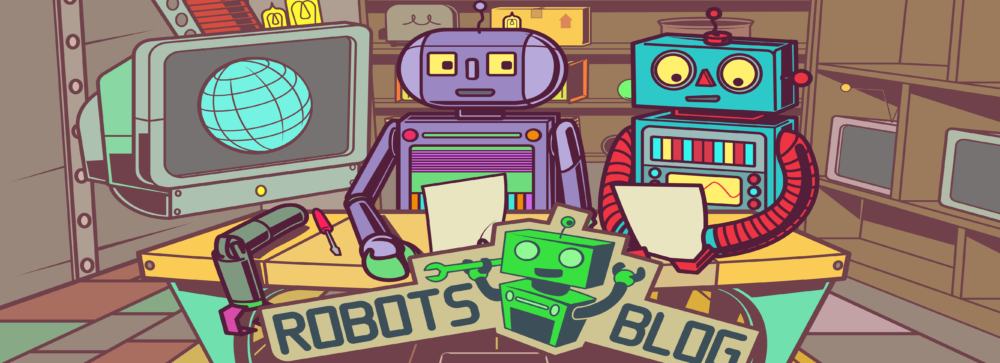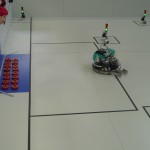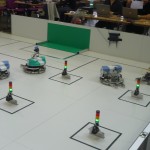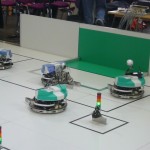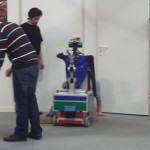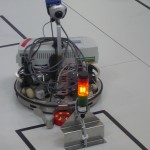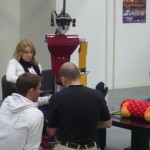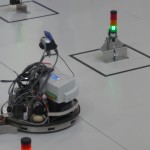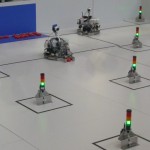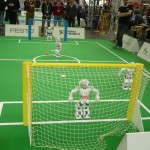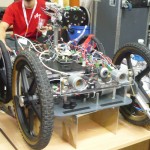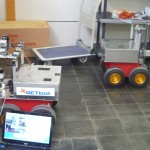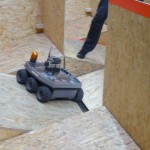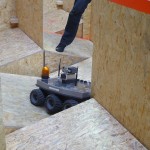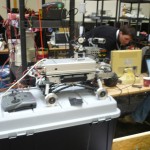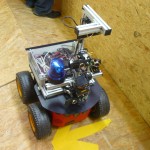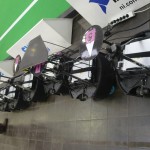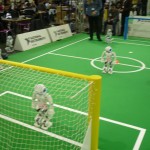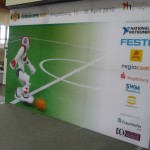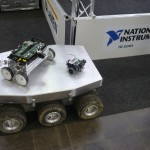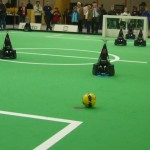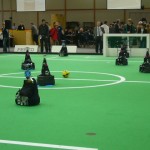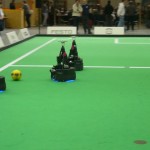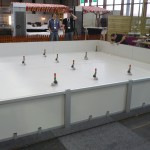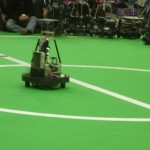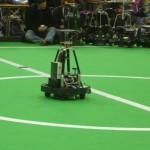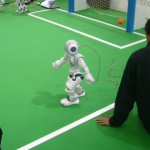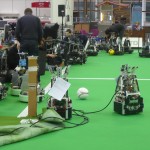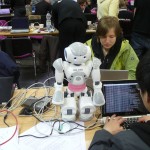Archiv der Kategorie: General
Live from RoboCup German Open 2010 #4
Live from RoboCup German Open 2010 #3
Live from RoboCup German Open 2010 #2
Roberta on Facebook
The Wild World of Robots

Via: OnlineSchools.org
Video Segway Rover Live-Firing Range Robots
Robot destroyed during testrun of the LHC
Today the LHC performed one of its atomic collision test. The goal was to validate the results of the last test run. During this test the Large Hadron Collider produced a never seen amount of energy. Therefore many skeptics said that the results where totally wrong because of the uncertainty principle. So this last test run tried to validated the results by using subatomic robots inside of the LHC to observe the collision and measuring the energy directly instead of indirect.
The approach failed by destroying the robots at four o’clock and one minute this afternoon. One of the robots collided with the atom instead the other proton. Its remains where found 4,1 kilometer outer the the two thousand and tenth epipolar collider shield.
For a detailed report on this robotic accident take a look here.
The centenary of John R. Pierce birth
John Robinson Pierce was born in March 27, 1910 Des Moines – Iowa and died at April 2, 2002 in Sunnyvale – California. During his life time was he an expert in the fields of radio communication, microwave technology, computer music and psychoacoustics. His team developed in the year 1949 the first transistor. This pioneer work allowed the building of modern digital computers and robots, as well as nearly all digital components of our every day life.
For those that would like to learn more about this pioneer we recommend flowing artikels:
- John R. Pierce on Wikipedia (de/ eng)
- John Pierce on ScienCentral, Inc, and The American Institute of Physics (eng)
- Transistor on Wikipedia (de / eng)
- Künstliche Intelligenz ist echte Blödheit – zum 100. Geburtstag von John R. Pierce on Heise online (de)
So, RoboBlog says happy birthday and thank you.
Adhesive foil/cover for Lego Mindstorms NXT available
 Ever wanted to individualize your NXT a bit more?
Ever wanted to individualize your NXT a bit more?
Now you can buy the Roberta adhesive foils for Lego Mindstorms NXT (design by Ashley A. Green) at Technik LPE and coulourise your NXT the way you want. The foils are wipeable, heavy-duty and removable.
See:
http://roberta-home.de/de/aktuelles/|neu|-roberta-nxt-klebefolie
http://www.shop.lego-in-der-schule.de/Uebersicht?sparte=10
